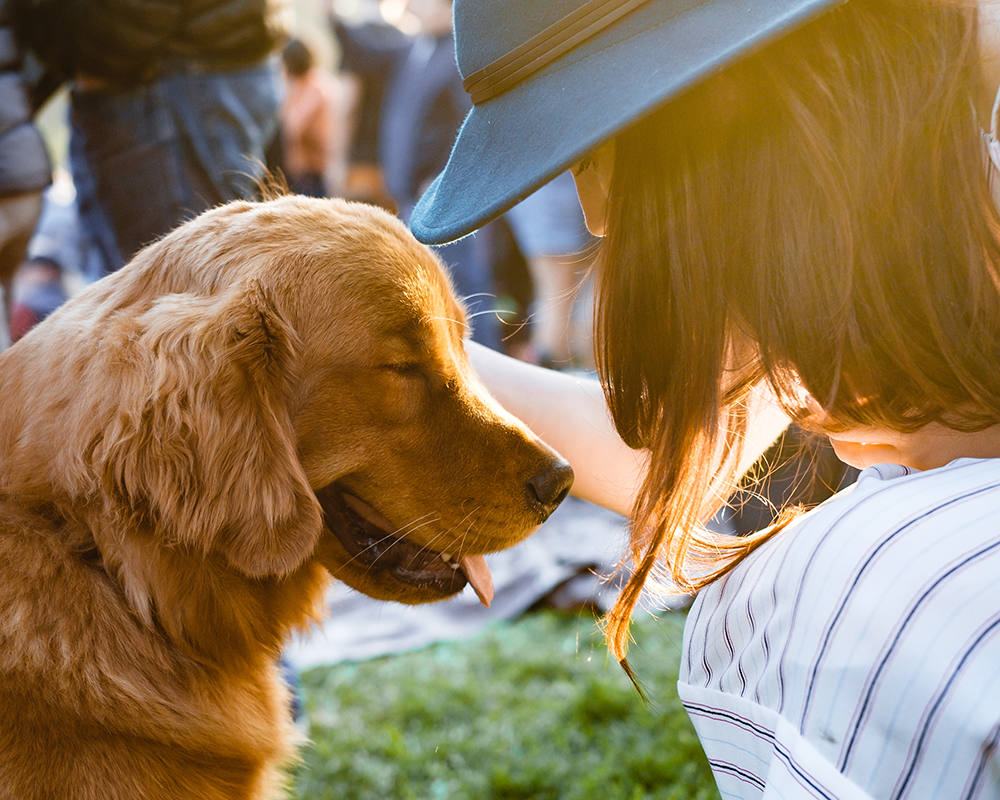
By Mike DuBose and Katie Beck
It was Friday, April 13, 2007. With tears streaming from our eyes, my wife Deb and I had to put BB, our black cat we loved so much, to sleep. It was the most gut-wrenching, painful, sorrowful experience I have ever gone through. As the president of six companies, I have been through many tough situations, both in building our businesses and managing 50 employees, but also in my personal life. I consider myself a tough human being. But there I sat in the veterinarian’s office, my heart broken, watching our cat peacefully fall into a deathly sleep. He had been through a great deal of pain, and Deb and I knew that he shouldn’t have to suffer any longer. Still, we were devastated by the loss of the cat we had come to love so much.
Our story began four years ago when one of our other cats, Midnight, died suddenly. My family was pretty torn up about his unexpected death, but I knew we had to move on with our lives. Many times, it is best to find another pet, not to replace the other one, but to help find new joy and repair broken hearts. We went to PetSmart to consider another adoption and there he was: an old black cat named BBC (Big Black Cat – a really original name)! He was very loving and we decided that he was the one. Then we learned that he was in remission with thyroid cancer. Deb and I looked at each other, knowing that if we adopted this cat, who looked as if he had some age on him, there was a good chance his time with us would be short. But there was a tugging on our hearts to take him home to what we called “the DuBose Cat Farm.” The word was out in the cat community that it was the place to go if you liked living the life of a king or queen!
BBC, or “BB,” as we called him, soon became like a child to us. I would often awake to him three inches away from my face, looking seriously into my eyes as if to say, “Scratch me!” Cats are not owned, but rather allow us to become a part of their lives, and BB had accepted us into his. If you really observe animals, you can see that they each have their own behaviors and unique personalities. Some animals tend to grow on people more than others, and BB had grown on us to the point of becoming our baby.
We never knew how old BB was, and in the summer of 2006, he began to decline. He developed diabetes and we had to give him insulin injections. A growth appeared on his throat that prevented him from swallowing, so his food intake declined. We knew he was headed down the road to even poorer health, and soon we would have to face that dreaded day when we would lose him. We began saying our goodbyes and prayed that God would just take him peacefully.
The morning of April 11, 2007, my wife and family were out of town and I was babysitting the cats. I awoke and found BB flat on the floor, nearly unconscious. Then he experienced a convulsion. I took him to the emergency animal hospital to find that they were only open on nights and weekends. We had recently switched veterinarians, so I did not know where to go next. After determining who the vet was and arriving at his office at 10 AM., I learned that two of our vets were on vacation and the third vet on duty would not arrive until 2 PM. I have never felt so powerless as I did when I asked the receptionist, “My cat is dying. Is there anything you can do?” She made a few calls to local vets, who declined to see me and my cat.
I took BB home and watched him helplessly go though one convulsion after another. I prayed constantly to God to please take him, but it was not his time for BB yet. Deb raced home from out of state and we said our goodbyes. We pretty much knew that BB was about to be gone.
As we arrived at the vet and waited for our turn, we could see that BB’s life was fading quickly. When we finally got to the vet and told him that BB had just had another seizure, the vet rushed him into another room. He came back later to tell us that BB had died but he had revived him. Our first thoughts were that we wished that BB had passed on, but the loving vet did not know his history and had saved him for more rounds of torture. BB stayed at the vet’s office for the rest of the day, and we returned at 5 PM. to take him home because the vet wanted us to observe him. My wife slept with BB that night on the floor, and he experienced more convulsions. The next morning we knew that we would have to make the decision to put him to sleep. We again said our goodbyes and took him to the vet.
At this point, the vet, my wife, and I knew that we had done everything possible, but BB’s quality of life would be about zero if we kept him alive and it would just be more torture for him and for us. This was the hardest decision we had ever made! So we decided that it was time. We chose to stay with him as the vet gave him the injection that would stop his heart, and watched as he went to sleep very peacefully in just seconds. The staff at our vet’s office was very compassionate. When a pet dies, the vet will take care of the body or you can take it with you. It was hard to go through the vet’s waiting area with BB’s body in a cardboard box, tears running down our faces. We had seen this exact pain in others in the past as we waited to have our cats cared for in the vet’s waiting area. Now, it was our turn to walk in their painful shoes.
We took him home and buried him in our back yard, along with the other cats that we had lost. We thanked Jesus for the time we had with BB and the joy we had experienced. At the same time, our hearts were broken. I am not sure who cried the most – my wife or me.
For all of my 58 years, my family and I have owned all sorts of pets, including dogs, cats, cattle, and horses, but for the first time, I had allowed one deep into my heart. BB’s death nearly killed my family with hurt. When I told others about my pet dying, I could tell that some of my friends who did not own pets could not understand my grief. Even those who had pets but had not lost one or had not been through the euthanasia process did not fully understand the pain my family was experiencing. Then, as I began to tell many others, they too started to talk about the pain they had gone through in losing their beloved pets. No matter how long ago it had been, I could see their eyes well up when I mentioned losing a pet.
After losing a pet, it is important to give yourself permission to grieve. Some people even feel guilty mourning for their pets because, after all, they’re “just animals.” The reality is that many people feel that their pets are part of the family, and the emotions brought on by the loss of these pets are very real. Not everyone will understand your grief, but it is important that you recognize your feelings and deal with them. Some people will go through the stages of grief (denial, anger, bargaining, depression, and acceptance) just as if they were dealing with the death of a person.
Losing a pet evokes different emotional responses in different people, and everyone mourns the loss of a pet in a different way. My wife and I eventually removed some of BB’s things from the house because it caused us too much pain to see them every day. Though you never get over losing a cat (or any other pet) that’s close to you, here some things that helped us through the grieving process and will hopefully help you, too:
- Stay busy. This will help to take your mind off the sadness and hurt you are feeling.
- Exercise more. Exercise creates endorphins, which can improve your mood.
- Comfort one another. Turn to your family and friends (but only those who are sympathetic to what it’s like to lose a pet). It’s OK to talk about your grief.
- Pray. God is always there to comfort you in bad times.
- Take time before adopting a new pet. It can take weeks or even months before your family is ready to add another pet to the family. Take some time to honor your deceased pet and recognize that you cannot replace the pet you have lost.
- Turn a painful situation into a positive one. Volunteer. Turn a painful negative into an exciting positive. You’ll feel better about helping others and it will help keep your mind off your grief. I have learned that in conflict and pain there is always opportunity!
- Seek counseling. The loss of an animal or person can be so hard that it can lead to depression. You may need the help of a professional counselor and possibly medication to help you through this dreadful loss. It’s OK to seek professional guidance!
After BB’s death, Deb and I channeled our energy, hurt, and compassion into Project Pet, a nonprofit agency dedicated to fostering and finding homes for shelter animals. We wanted to honor his memory by making better lives for other cats who find themselves, as he once did, hoping for a home. Deb and I now sponsor two part-time employees at PetSmart who care for the adoptable cats housed there and strive to place them with new owners. You will catch our loving staff, Louise and Patricia, at PetSmart loving on cats that were once destined to die in a shelter. It comforts us to know that, although BB has left this world, the mark that he made on our lives inspired us to take action to improve the lives of thousands of cats. Several months after BB’s death, we adopted another cat, Frances, through Project Pet. Frances is currently enjoying being a teenager at DuBose Cat Farm, and we expect to spend many more happy years with her. But even a year after BB’s death, the hurt is still there. We will always miss him!
If you need additional help managing your grief over the loss of a pet, there are resources available online and over the phone. An online support group and list of support hotlines can be found at www.petloss.com, and www.pet-loss.net offers listings of counselors, support groups, and pet cemeteries alphabetized by state. Both of these sites also have a variety tips and articles on coping with pet loss.
Please visit www.projectpet.com to donate, volunteer, see pictures of adoptable pets, or to learn more about Project Pet. You can reach Project Pet by phone at (803) 407-0991.



